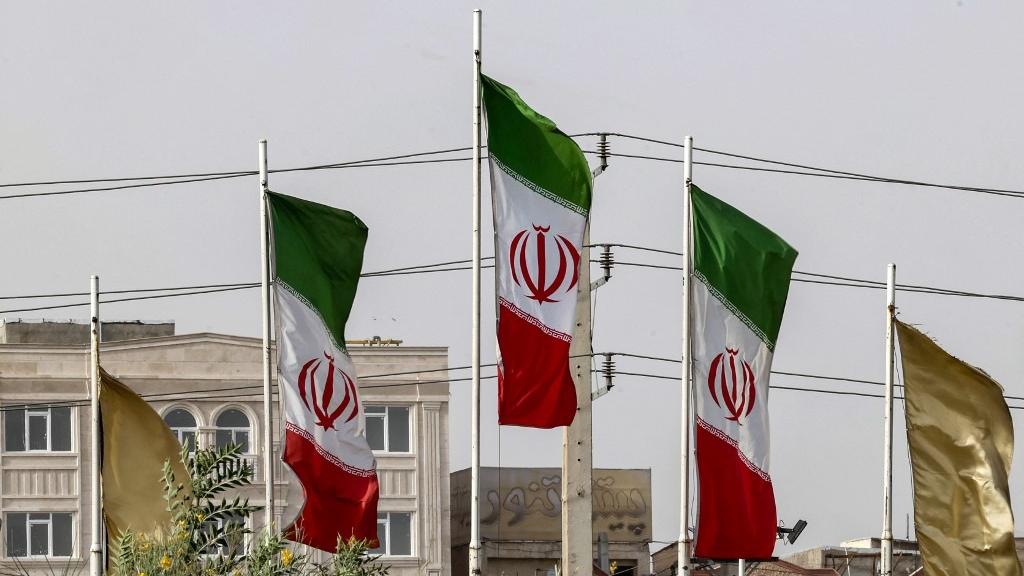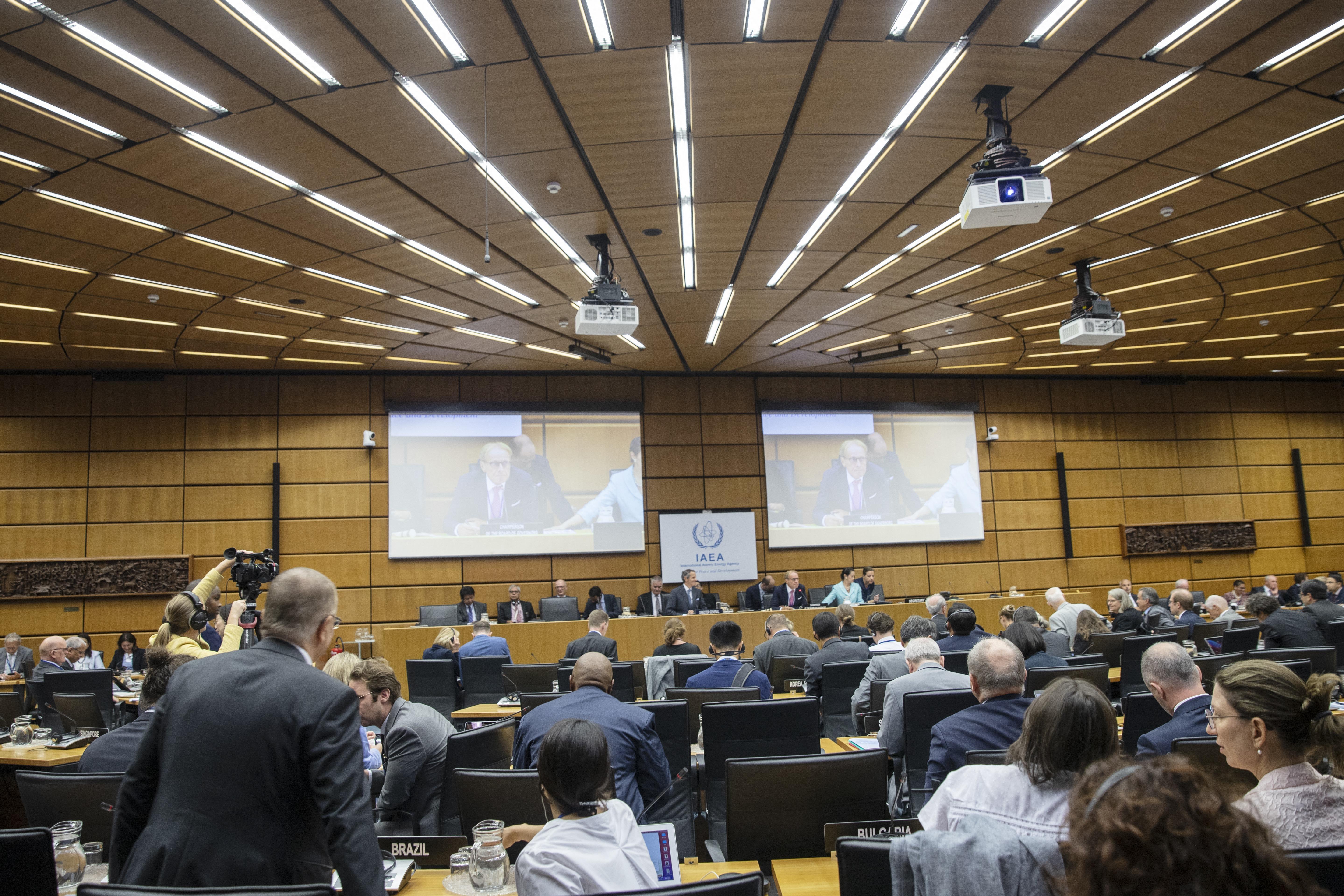 The flags of Iran flutter in the south of the capital Tehran, Iran, on July 4, 2022. (PHOTO / AFP)
The flags of Iran flutter in the south of the capital Tehran, Iran, on July 4, 2022. (PHOTO / AFP)
TEHRAN - Iran on Wednesday vowed "a fitting response" to the anti-Iran statement issued at a meeting of the International Atomic Energy Agency (IAEA) Board of Governors earlier in the day.
Iran will respond to the "political move" of the E3 group of France, Britain and Germany as well as the United States, a Foreign Ministry statement quoted spokesperson Nasser Kanaani as saying, adding that exerting political pressure on Iran will backfire.
Kanaani noted that the criticism leveled against Iran's cooperation with the IAEA in the statement came on the heels of significant progress in the cooperation between Tehran and the agency following the two sides' interactions since the beginning of the year.
READ MORE: Iran: US 'responsible' for nuke deal stalemate, Gulf tensions
Kanaani noted that Iran is committed to the principle of cooperating with IAEA within the framework of the safeguards agreements.
He said it is a regret that the E3 and the US, which have "certain motives" behind their anti-Iran moves and have adopted hostile stances against the country, are abusing the technical cooperation between Tehran and the IAEA to achieve their political objectives.
Iran's atomic chief on Wednesday said his country will not completely implement the nuclear deal if the Western sanctions on Tehran are not fully lifted and the other parties do not honor their obligations under the agreement
In the statement, the E3 claimed that Iran's actions remain in "clear violation of its JCPOA commitments and stated intentions," and that Iran has continued escalating its nuclear program to "an alarming level clearly beyond credible civilian justification, and has displayed no will to implement the transparency commitments laid out in the joint statement agreed with the IAEA last March."
ALSO READ: US, allies drag feet on Iran nuclear deal
Iran signed the nuclear deal, formally known as the Joint Comprehensive Plan of Action (JCPOA), with world powers in July 2015, agreeing to put some curbs on its nuclear program in return for the removal of the sanctions on the country. The US, however, pulled out of the deal in May 2018 and reimposed its unilateral sanctions on Tehran, prompting the latter to drop some of its nuclear commitments under the deal.
 A general view of the Board of Governors' meeting of the International Atomic Energy Agency (IAEA) at the agency's headquarters in Vienna, Austria on Sept 11, 2023. (PHOTO / AFP)
A general view of the Board of Governors' meeting of the International Atomic Energy Agency (IAEA) at the agency's headquarters in Vienna, Austria on Sept 11, 2023. (PHOTO / AFP)
Iran's atomic chief on Wednesday said his country will not completely implement the nuclear deal if the Western sanctions on Tehran are not fully lifted and the other parties do not honor their obligations under the agreement.
READ MORE: Iran unveils homegrown radionuclide caesium-137
President of the Atomic Energy Organization of Iran (AEOI) Mohammad Eslami made the remarks on the sidelines of a cabinet meeting in the Iranian capital Tehran, while elaborating on the country's nuclear activities and cooperation with the IAEA, according to the official news agency IRNA.
He said the E3 group cannot expect Iran to fully implement the JCPOA, as none of them are fulfilling their obligations under the deal.
He noted that Iran's nuclear measures are being implemented based on a law passed by the Iranian parliament in 2020 to counter US sanctions, adding the country will continue the same trend by the time the sanctions are not fully removed.
ALSO READ: President: Iran to continue nuclear talks with 'dignity'
The parliament's law mandated the government to restrict inspections of Iran's nuclear facilities by the IAEA and accelerate the development of the country's nuclear program beyond the limits set under the JCPOA.
With respect to the AEOI's cooperation with the IAEA within the framework of the safeguards agreements, Eslami said Iran has provided the necessary explanations and submitted many documents to the agency during negotiations, stressing the outstanding cases and issues of difference between the two sides have been reduced from four to two.
The talks on the revival of the JCPOA began in April 2021 in Austria's capital Vienna. Despite several rounds of talks, no significant breakthrough has been achieved since the end of the last round in August 2022.


